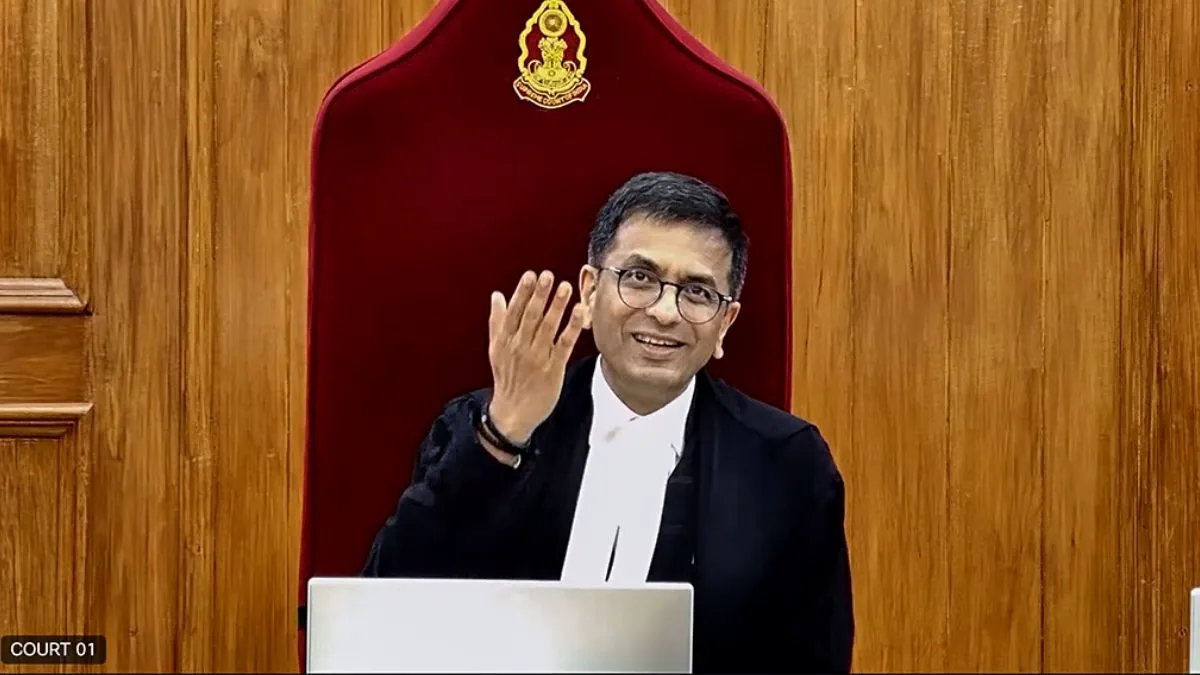- By Shivam Shandilya
- Fri, 08 Nov 2024 07:55 PM (IST)
- Source:JND
As India's 50th Chief Justice, DY Chandrachud, worked as CJI for the day on Friday, he will know for his judgements on several key issues, including the Ayodhya, land dispute of consensual gay sex. CJI Chandrachud will retire on Sunday and will hand over the baton to Justice Sanjiv Khanna after a tenure of two years at the helm of the Indian judiciary.
CJI Chandrachud followed the footsteps of his father, Y V Chandrachud, who served as the CJI with the longest tenure between 1978 and 1985, the only instance of a father and son occupying the highest seat in the highest court of India. He studied in Delhi's St Stephen's College and Campus Law Centre and then went on to get an LLM degree and a doctorate from the Harvard Law School. He became chief justice on November 9, 2022.
On the very last working day, Justice Chandrachud headed a Constitution bench that delivered an important verdict on the minority status for the Aligarh Muslim University. The bench, in a 4:3 verdict, decided to overturn a 1967 judgment that stripped the university of minority status.
Here's A Look At Key Judgments By CJI Chandrachud
Decriminalisation Of Section 377
Section 377 of the Indian Penal Code criminalised consensual same-sex relations, leading to the discrimination and persecution of the LGBTQ+ individuals. A five judge bench was formed to hear the case challenging Section 377. CJI Chandrachud provided a concurring opinion arguing against the criminalisation of consensual acts between adults.
The apex court in 2018 decriminalised Section 377, stating that sexual orientation is an intrinsic part of human dignity. The judgment also emphasised that every individual deserves equal rights regardless of their sexual orientation, marking a significant victory for LGBTQ+ rights in India.
Abortion Rights For Unmarried Women
This is one of the most recent and talked-about cases in the country. The Medical Termination of Pregnancy Act limited abortion access primarily to married women or specific circumstances for unmarried women. A petition was filed challenging the restrictions. The CJI Chandrachud-led bench examined whether such limitations were discriminatory against the unmarried women.
Decriminalisation Of Adultery
Section 497 of the IPC criminalised adultery. But it only penalised men for engaging in extramarital affairs while treating women as property rather than individuals with agency. The top court examined if this law violated the constitutional rights related to gender equality and personal liberty.
CJI Chandrachud in 2018 declared Section 497 unconstitutional.
Govt Of NCT Of Delhi v Union Of Delhi
A power struggle between the Delhi government and the Lieutenant Governor over control of administrative services raised concerns about the governance in Delhi. The apex court needed to clarify the extent of powers held by both entities under the constitutional provision. The court on May 11, 2023, ruled that the Delhi government had control over all services except those related to land and law enforcement.
NEET UG Re-Exam
In July this year, a bench headed by the Delhi government had control over all services except those related to land and law enforcement.
This judgement reinforced democratic governance by affirming that elected officials refused to cancel the 2024 NEET UG exam for entrance to medical colleges, saying that the paper leak was not "systemic" or widespread and that it affected the integrity of the test. The bench said that there was not sufficient material available to order a re-test. However, the court also clarified that the order would not prevent the authorities from taking action against the candidates who had got admission via malpractices.
Electoral Bonds Case
A five judge bench headed by CJI Chandrachud struck down the Electoral Bonds scheme for political funding, which had been in place since 2018. CJI said that the scheme was unconstitutional and arbitrary and could lead to a quid pro quo arrangement between political parties and donors.
The bench also ordered the State Bank of India (SBI) to stop issuing the electoral bonds immediately. The court also ordered the poll body to publish the details of the political parties that received contributions via electoral bonds since April 2019.

